Excessive Delegation Under Administrative Law
Introduction
The concept of excessive delegation is important in administrative law because it prevents the uncontrolled transfer of legislative power. It sets boundaries on the authority that administrative bodies can have, ensuring they operate within legal limits.
By carefully reviewing laws and following established rules, issues of excessive delegation can be identified and corrected. This principle supports democracy, accountability, and the rule of law in administrative actions.
Doctrine of Excessive Delegation under Administrative Law
The doctrine of excessive delegation in Administrative Law states that if a legislative body delegates too much of its authority to another entity, it can be considered unconstitutional.
The legislature must outline the policy of the law, establish legal principles, and provide clear standards for the delegated authority to follow when making regulations. If the legislature fails to do this, the law can be declared invalid due to excessive delegation. This issue occurs when crucial legislative functions are delegated beyond acceptable limits.
Nature and Scope of Excessive Delegation
The concept of excessive delegation is based on the principle that Parliament, as a legislative body, does not possess unlimited legislative power. Instead, its power is granted by the constitution.
Parliament must exercise its legislative power directly, as required by the Constitution, and cannot simply pass it on to the executive branch. Delegating essential legislative functions to the executive is constitutionally unacceptable. These essential functions include setting legislative policies and creating rules of conduct.
After the legislature has fulfilled these primary duties, it can delegate secondary and incidental functions to the executive.
In countries like Great Britain, concerns about excessive delegation of parliamentary powers are mainly political. However, in the United States and India, these concerns are addressed through judicial review.
Regarding the operation of the doctrine of excessive delegation:
- Powers and Duties of Courts: The principle that legislative power resides with the people's representatives underlies the rule against excessive delegation, ensuring that laws are made by elected representatives. However, due to the complexities of modern governance, legislatures often lack the time and expertise to handle detailed matters, making delegation of law-making authority necessary.
- Court’s View on Excessive Delegation: Challenges to the validity of laws based on delegated legislation raise intricate legal issues. Judicial opinions differ on how to handle such challenges. Generally, if the legislature establishes the principles and guidelines of a statute and provides sufficient direction for their implementation, it is acceptable for the legislature to delegate the task of actual implementation to its chosen delegate.
Principles Governing Excessive Delegation
Determining whether excessive delegation has occurred is based on three key principles:
- Essential Legislative Functions: The legislature cannot delegate its core responsibilities, such as creating laws and setting legislative policies.
- Practical Considerations: Due to the complexities of modern life, it is impractical for the legislature to predict and address every possible situation in detail. Therefore, the legislature may delegate certain tasks as long as it provides clear legislative guidelines.
- Lawful Delegation: Delegating authority to the executive is allowed if done lawfully, and such delegation is not considered excessive just because the legislature could have included more specific details.
Tests Applied by Courts
When evaluating whether a statute is invalid due to excessive delegation, courts use two main tests:
- Delegation of Essential Legislative Functions: The court checks if the delegation involves handing over core legislative responsibilities.
- Clarity of Legislative Policy and Principles: The court examines if the legislature has clearly stated its policy and principles to guide the executive in exercising the delegated authority.
If it is found that essential legislative functions have been delegated or that there is a lack of clear policy guidance, then the delegation is deemed excessive. Conversely, if the delegation does not compromise core legislative responsibilities and there is clear policy guidance, the statute stands valid.
Excessive Delegation – Perspective of Indian Courts
The principle of excessive delegation is crucial in Indian law as it maintains the integrity of due process. It allows for necessary delegation but cautions against unjustified and excessive transfer of powers to administrative bodies. Legislative bodies can delegate authority only within a defined framework established by the legislature itself.
In the United States, the distinction between permissible delegations was established in the 19th century, notably in the case of Wayman v. Southard. Here, the courts differentiated between "important subjects" and "mere details," allowing designated authorities to fill in the details under general provisions set by the legislature.
In India, the Privy Council in Queen vs Burah asserted the Indian legislature's plenary legislative authority, rejecting the idea of delegation. However, post-independence, the issue arose concerning the delegation of substantive law-making powers without a prescribed structure.
The case of In Re Delhi Laws Act marked a shift, with Indian courts departing from the English model of extensive delegation and setting limits on delegated legislation. The courts emphasized that legislative power comes from the constitution and cannot be sub-delegated.
Indian courts have defined the parameters of excessive delegation through various rulings. In the Re Delhi Laws Act Case, the court invalidated authority delegation beyond constitutional limits, making the delegation void.
In Hamdard Dawakhana v. Union of India, the Supreme Court struck down Section 3(d) of the Drug and Magic Remedies (Objectionable Advertisement) Act because it lacked specified criteria or standards, giving unguided power to the Executive.
The case of Harakchand Ratanchand Banthia and Ors v. Union of India addressed the broad authority given by clause (b) sub-section (2) of Section 5 of the Gold (Control) Act, 1968. The Supreme Court nullified this authority as it was too broad and legislative in nature.
In Air India v. Nargesh Meerza and Ors., the court ruled against the Managing Director of Air India's unilateral extension of an employee’s retirement, finding it an unreasonable discretionary power that violated constitutional provisions.
Why is Excessive Delegation Unconstitutional?
Excessive delegation is considered unconstitutional for several important reasons:
- Clarity and Understanding of the Law: To determine if a law is constitutional, it is essential to understand its purpose, the grounds for its application (as stated in its preamble), and its overall framework.
- Background and Circumstances: The context in which the law was enacted is crucial for evaluating its constitutionality.
These principles were highlighted in the case of St. Johns Teachers Training Institute v. National Council for Teacher Education, which helps in assessing whether a particular legislation exceeds permissible delegation limits. While previous case law and factual circumstances indicate that excessive delegation is inherently unconstitutional, the risks associated with concentrating too much power in one entity cannot be ignored.
When a statute is challenged for its constitutionality, it must not only avoid arbitrariness but also adhere to the principles of reasonableness outlined in Articles 14 and 19 of the Indian Constitution. Therefore, any rule-making function that unfairly harms individuals without lawful authority breaches the constitutional principles of fairness and legality, making it inherently invalid.
The Question of Controlling Excessive Delegation
Understanding that delegated legislation is essential, it's crucial to control this administrative activity. Control over delegated legislation happens at two stages:
- Legislative Power Delegation: In England, where Parliament is supreme, courts cannot interfere with legislative delegation. However, in the United States, the doctrine of separation of powers imposes limits on legislative delegation. The key principle here is that the legislature should not delegate unlimited power to administrative authorities. Instead, it should retain the essential legislative functions of setting policy and delegate only the authority to establish details for implementing that policy.
- Judicial Control: Once delegated legislation is enacted, it is important to ensure the proper use of delegated powers. The focus moves from questioning the need for delegated legislation to ensuring it is executed properly under adequate controls to minimise institutional harm. This highlights the critical role of judicial oversight in controlling delegated legislation.
Conclusion
The doctrine of excessive delegation in administrative law is essential to prevent the unconstitutional transfer of legislative powers. By thoroughly examining legislative intent, ensuring clear statutes, and adhering to constitutional principles, instances of excessive delegation can be identified and corrected.
Legislative and judicial oversight are crucial in maintaining the integrity of the legal system, ensuring that delegated powers stay within defined limits. By balancing administrative efficiency with constitutional principles, this doctrine promotes accountability and upholds the rule of law in governance.
Share
Related Post
Tags
Archive
Popular & Recent Post






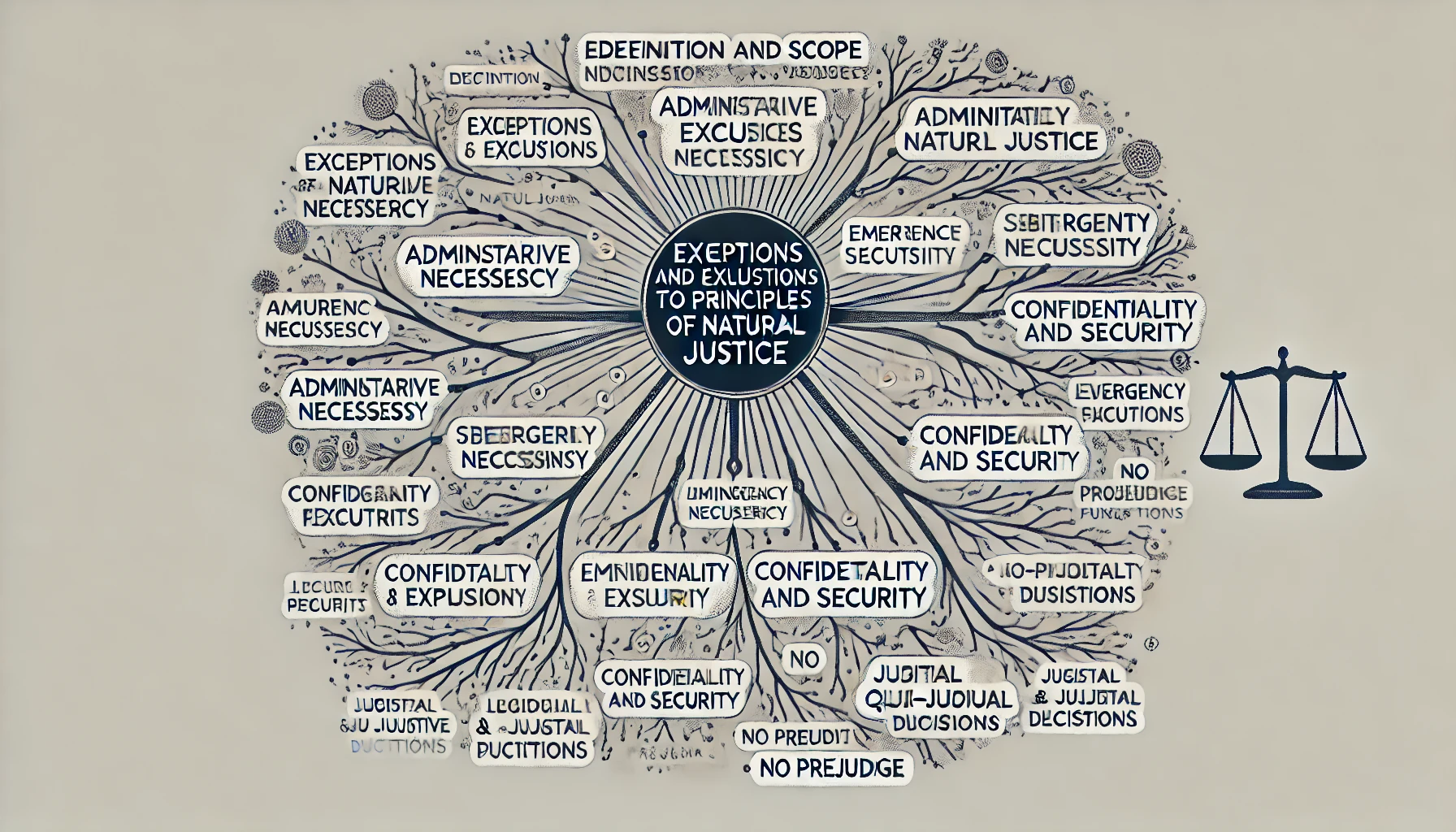
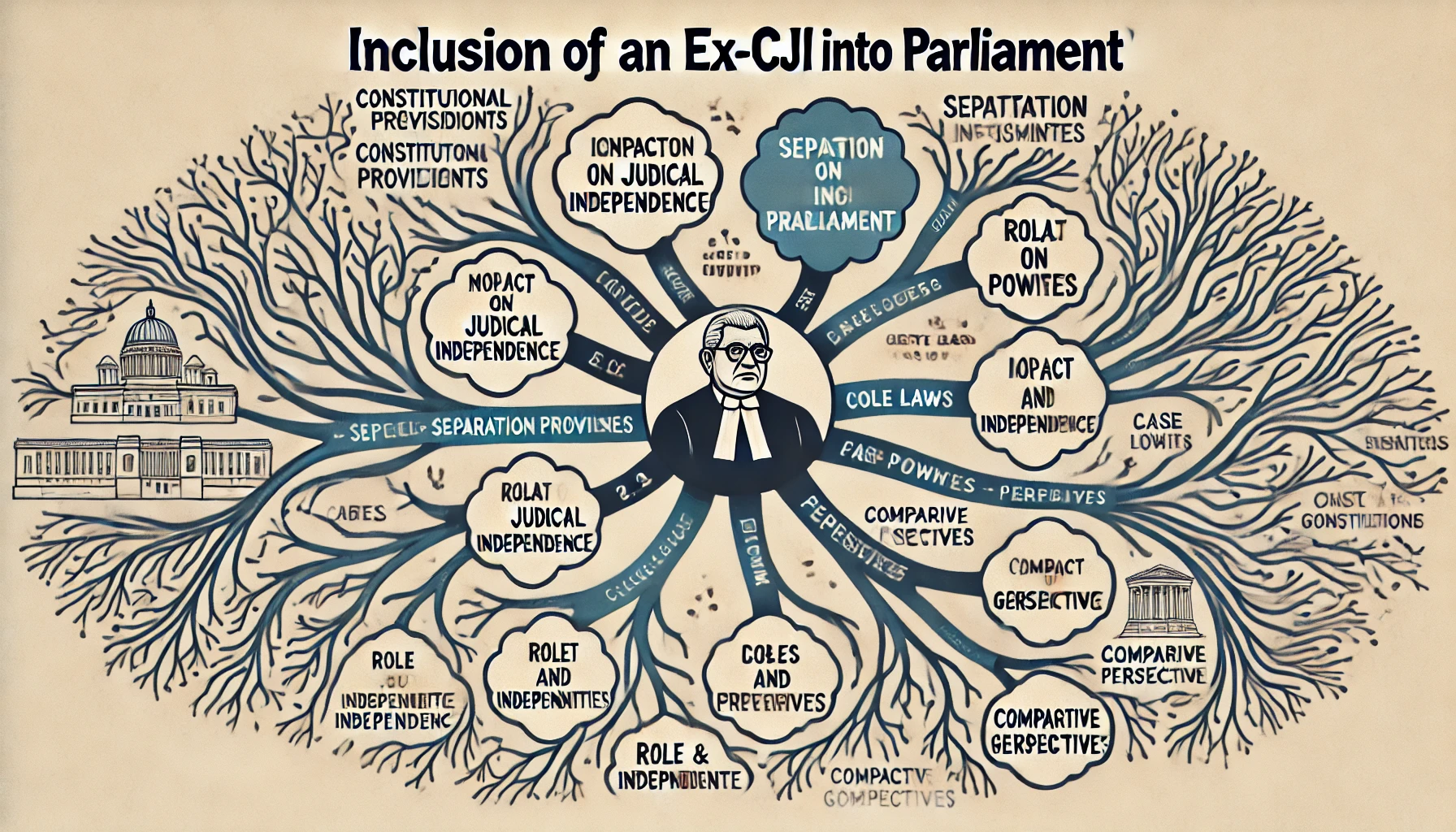
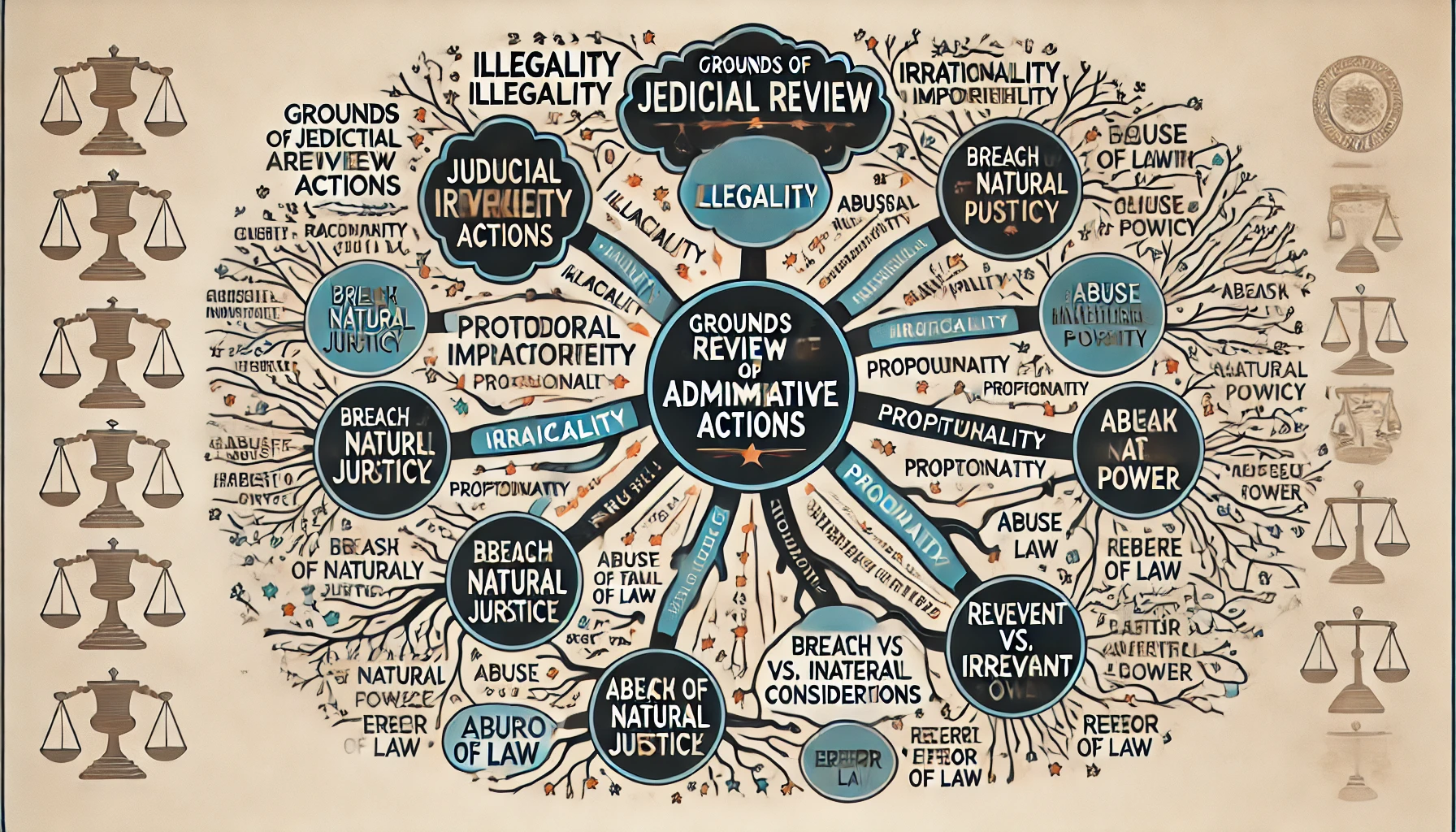
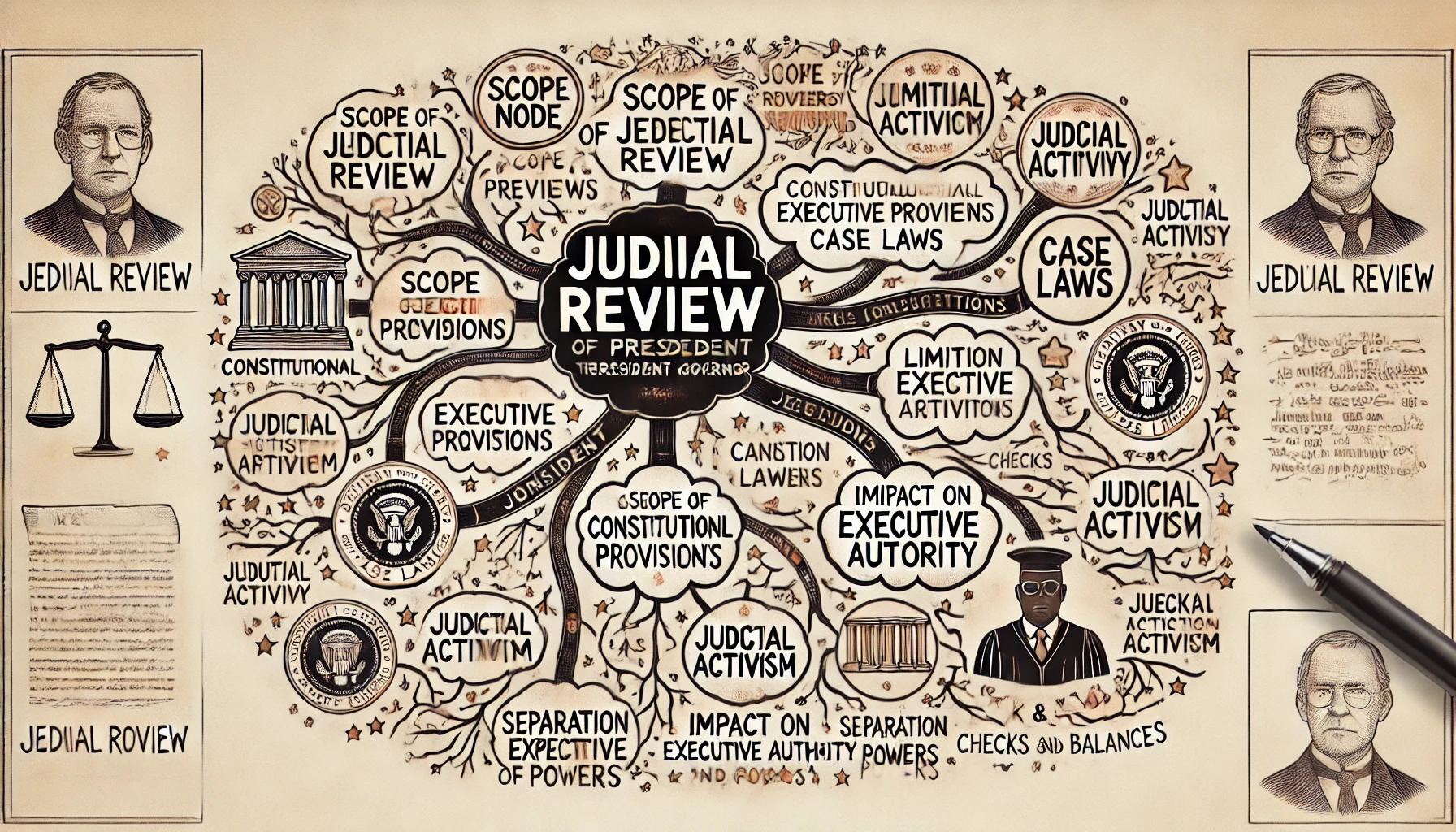
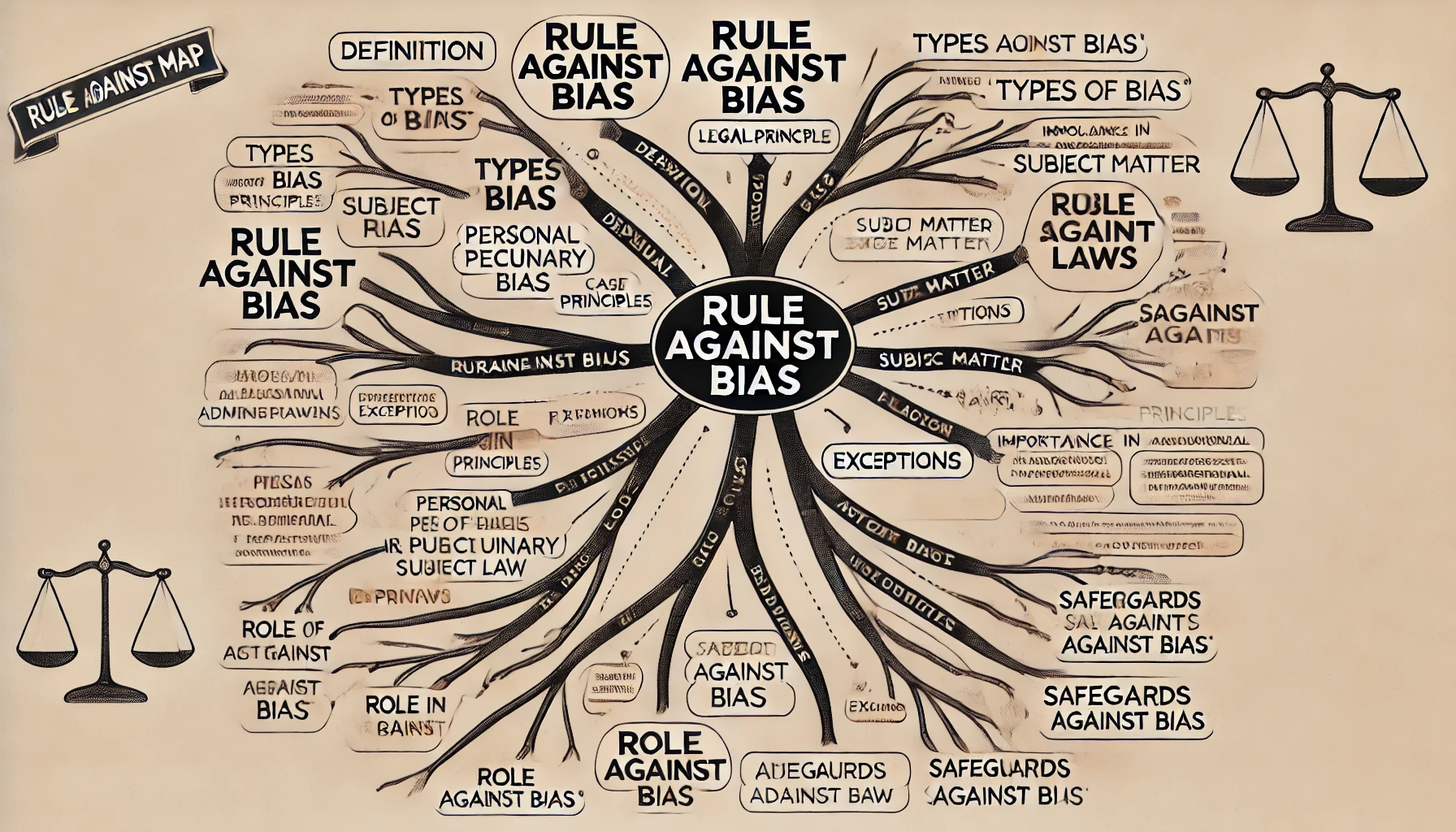
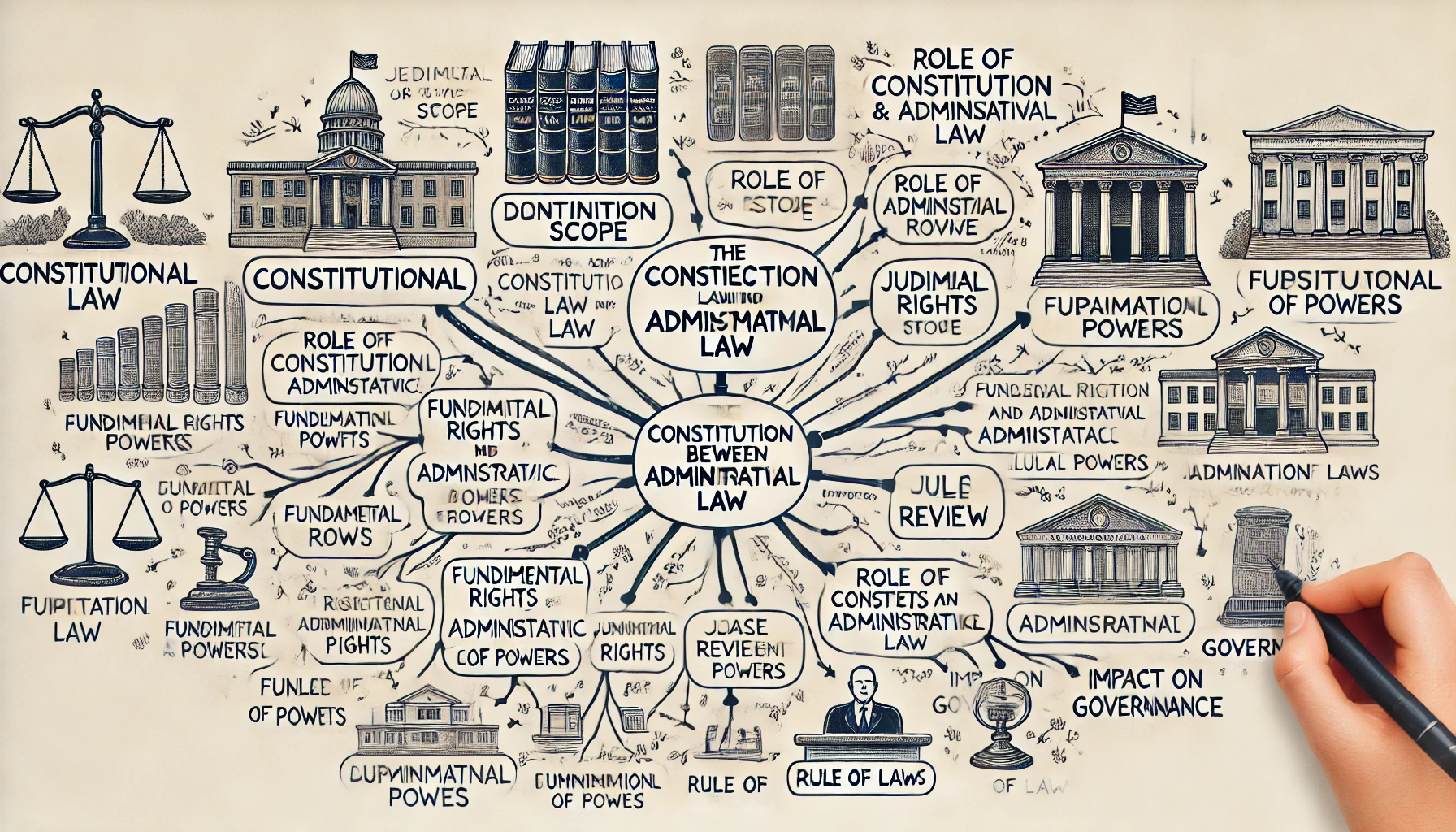
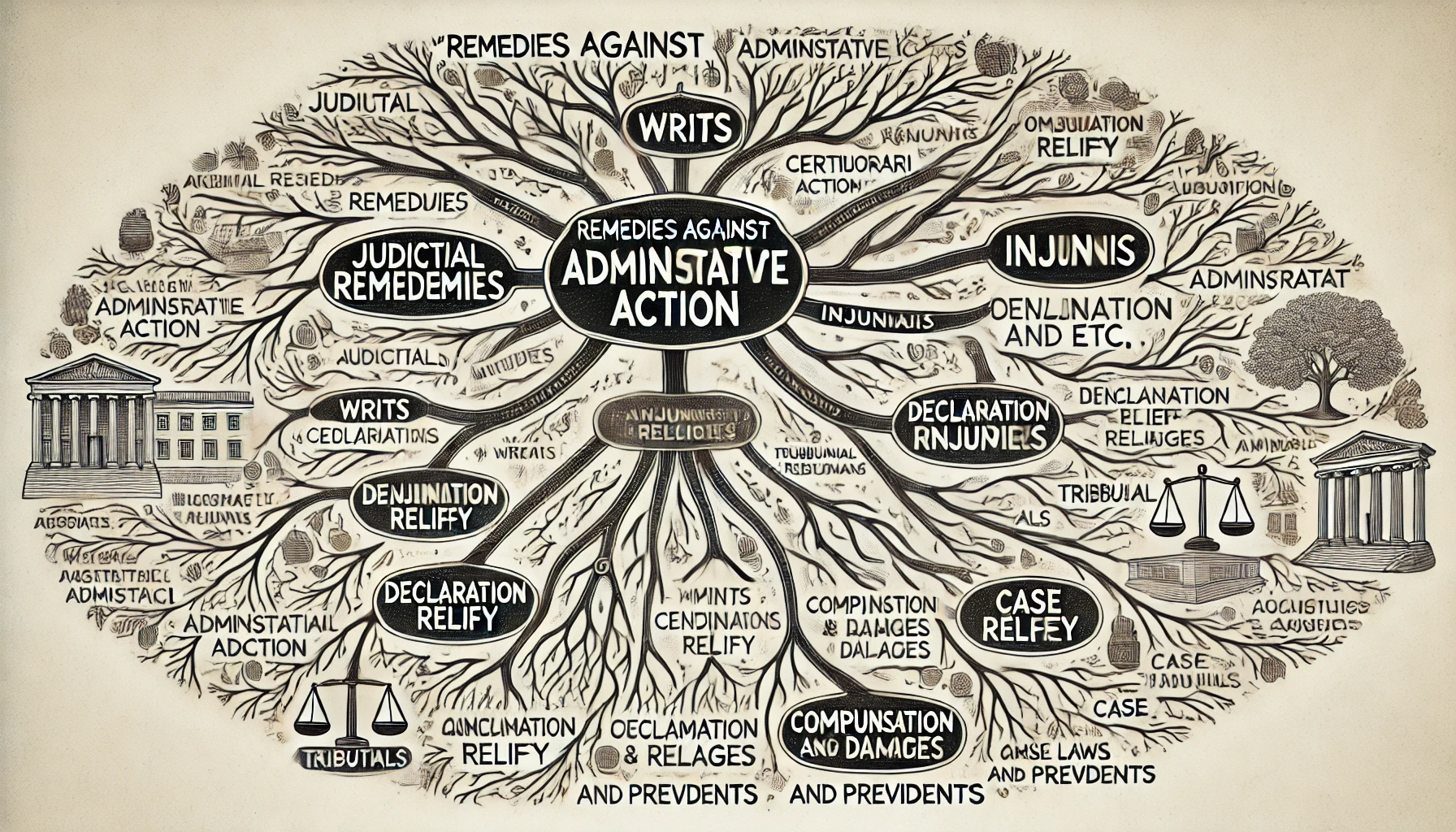
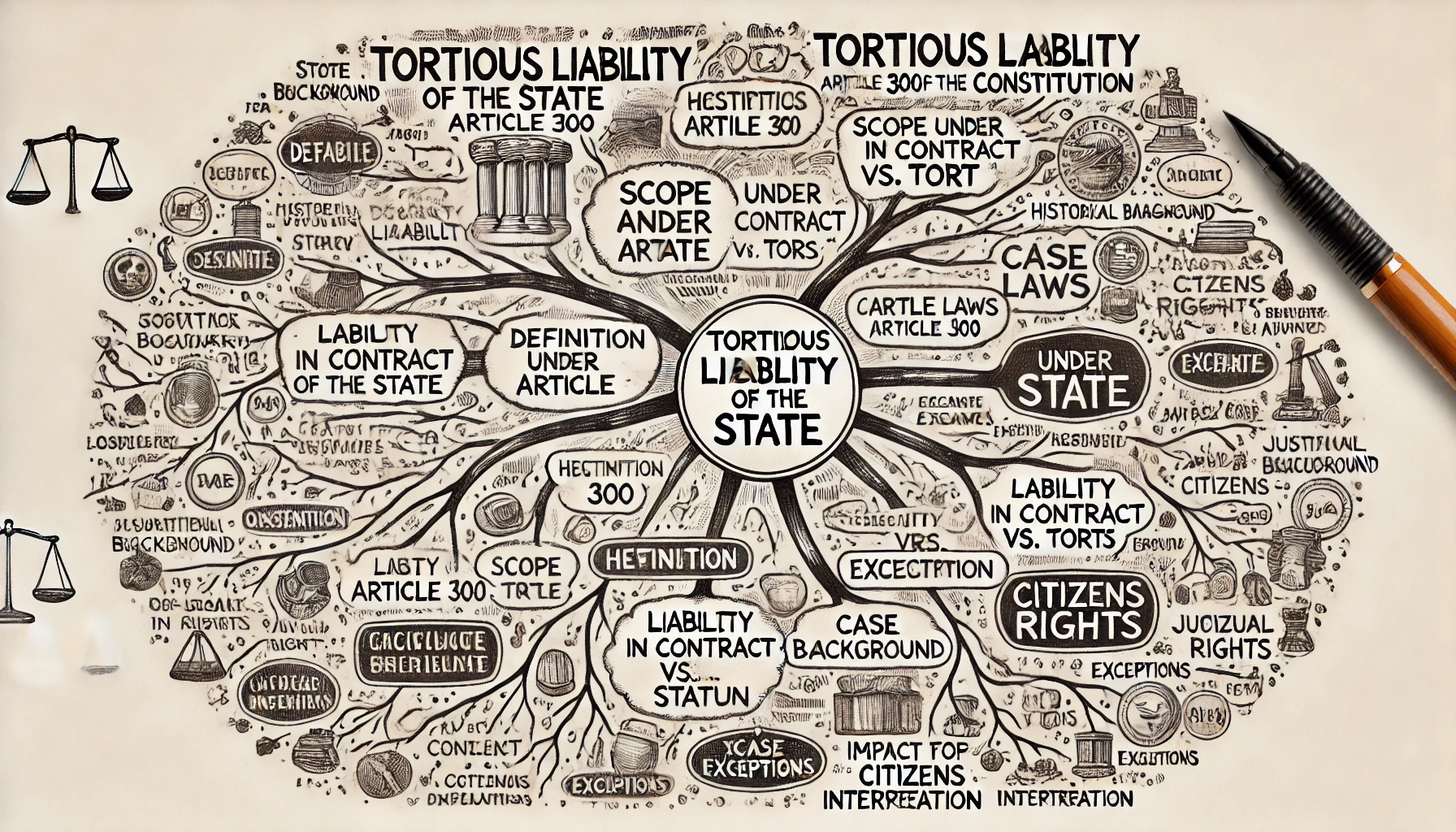
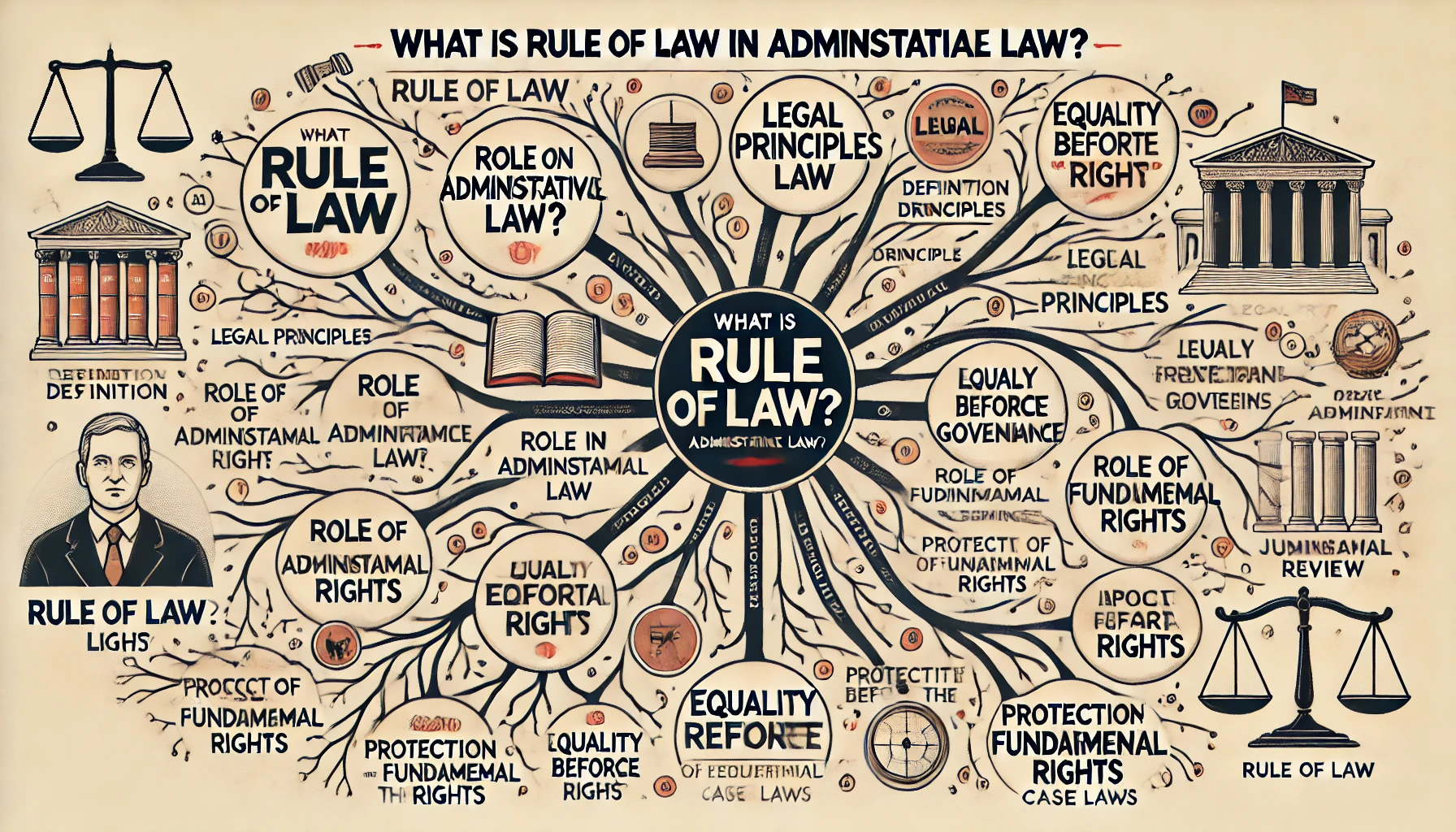
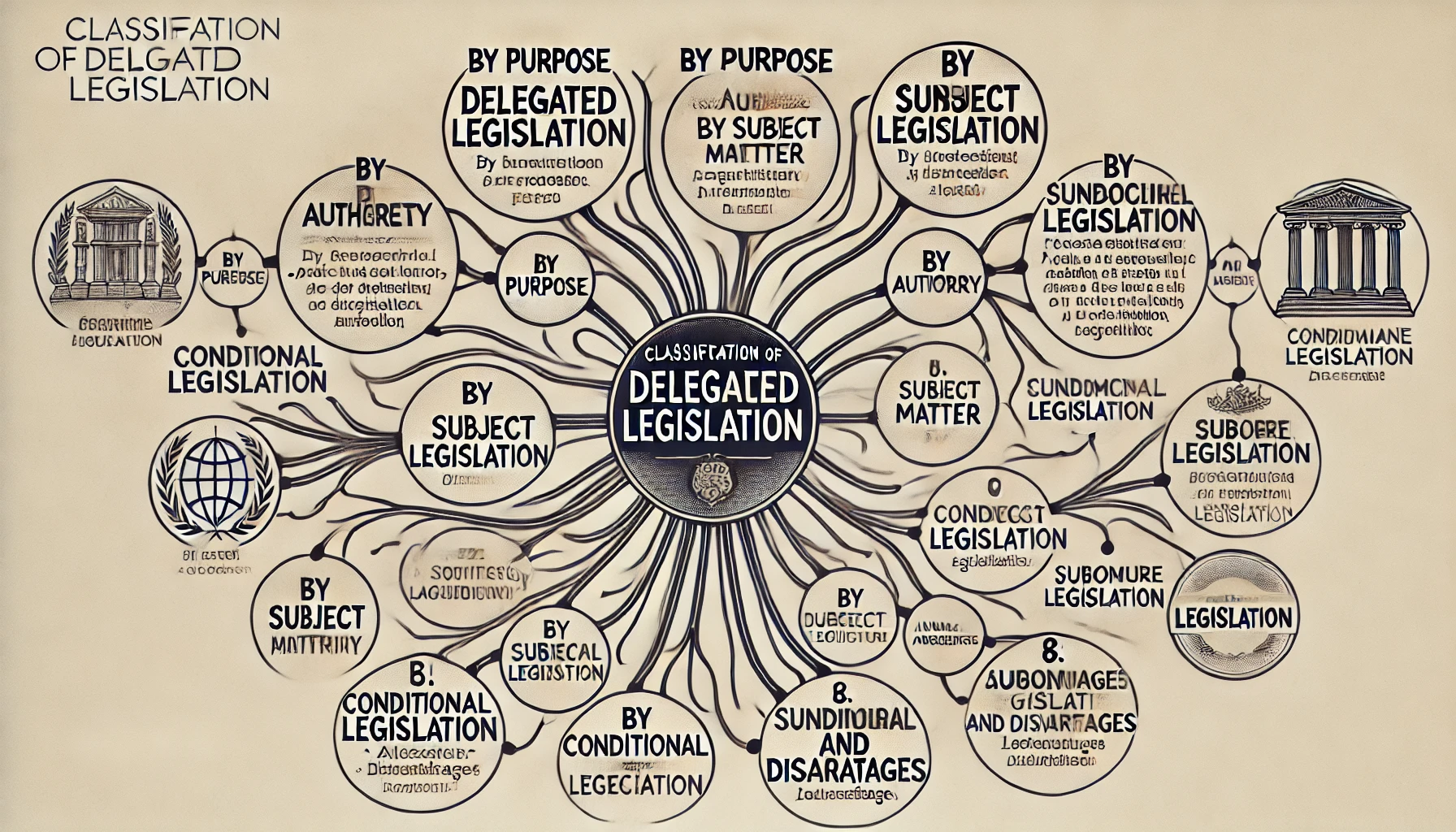

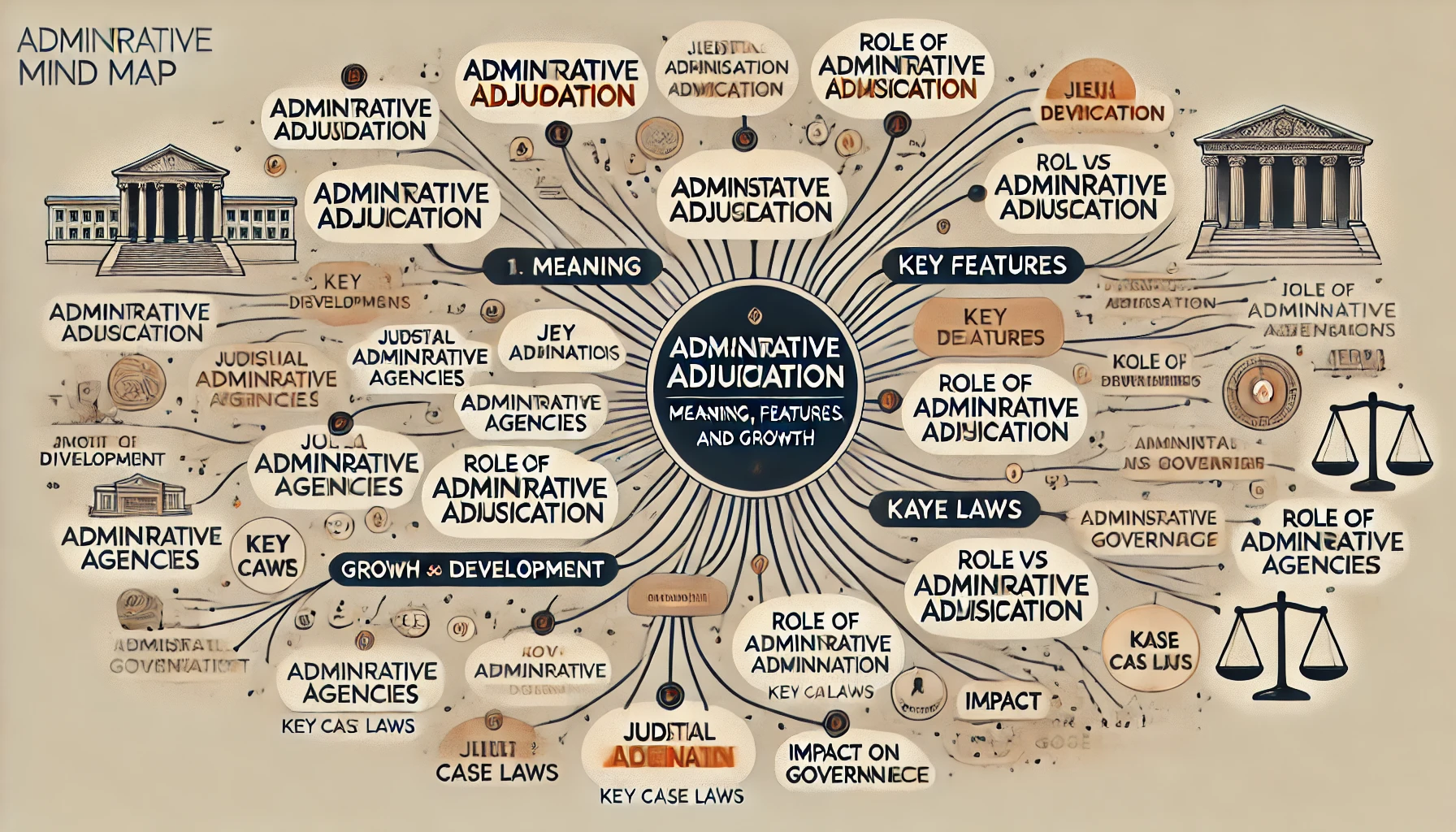

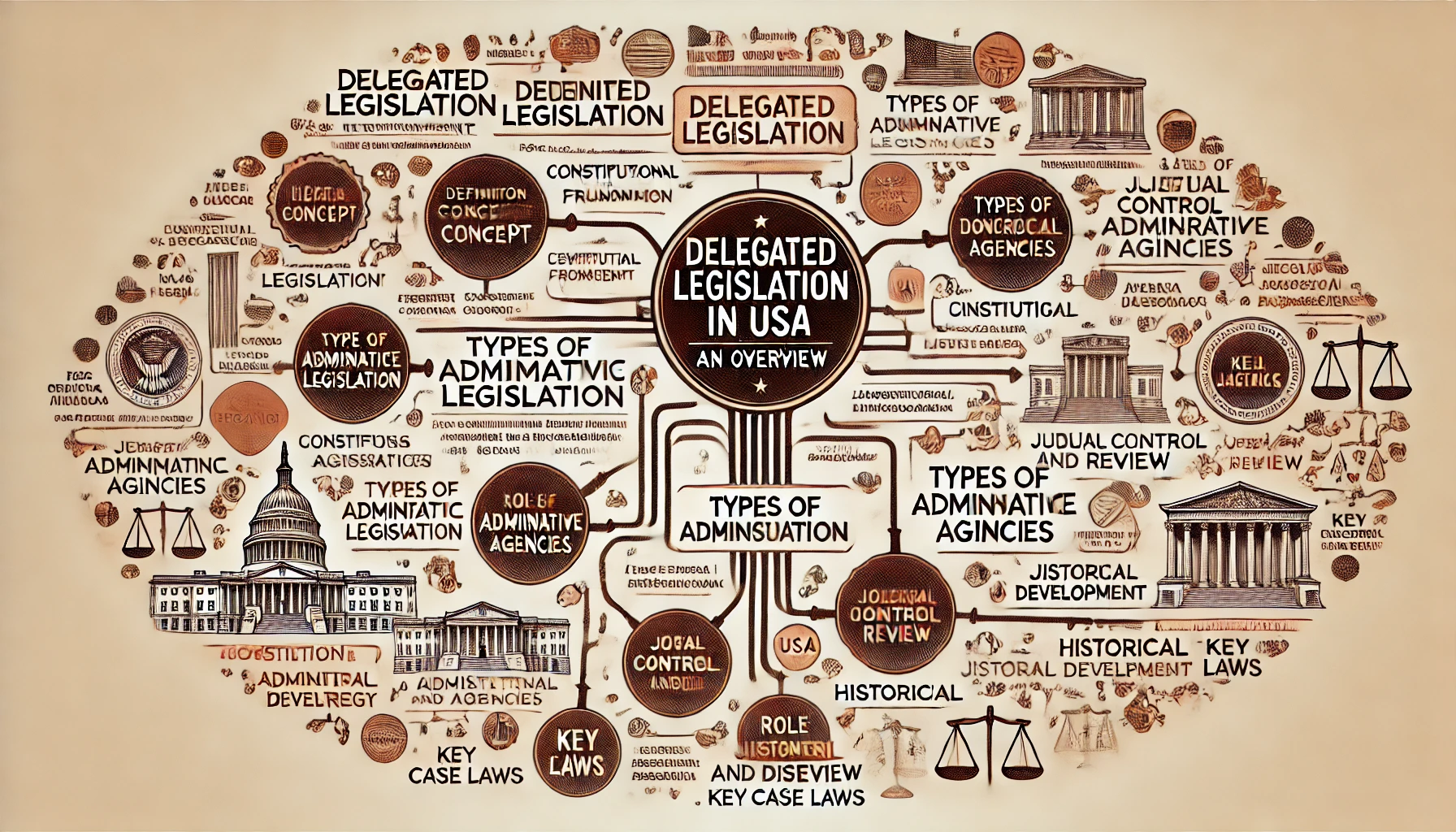
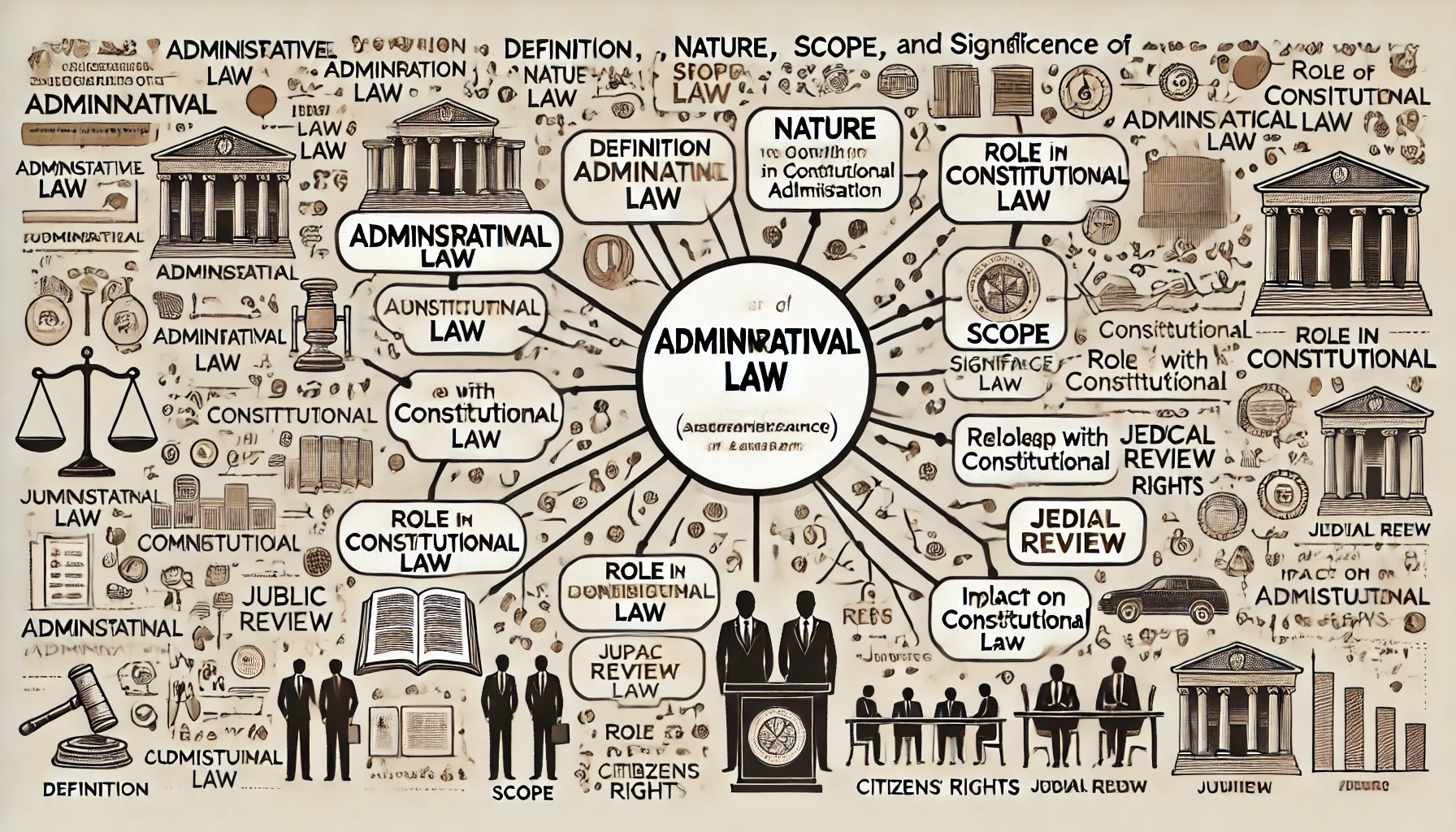
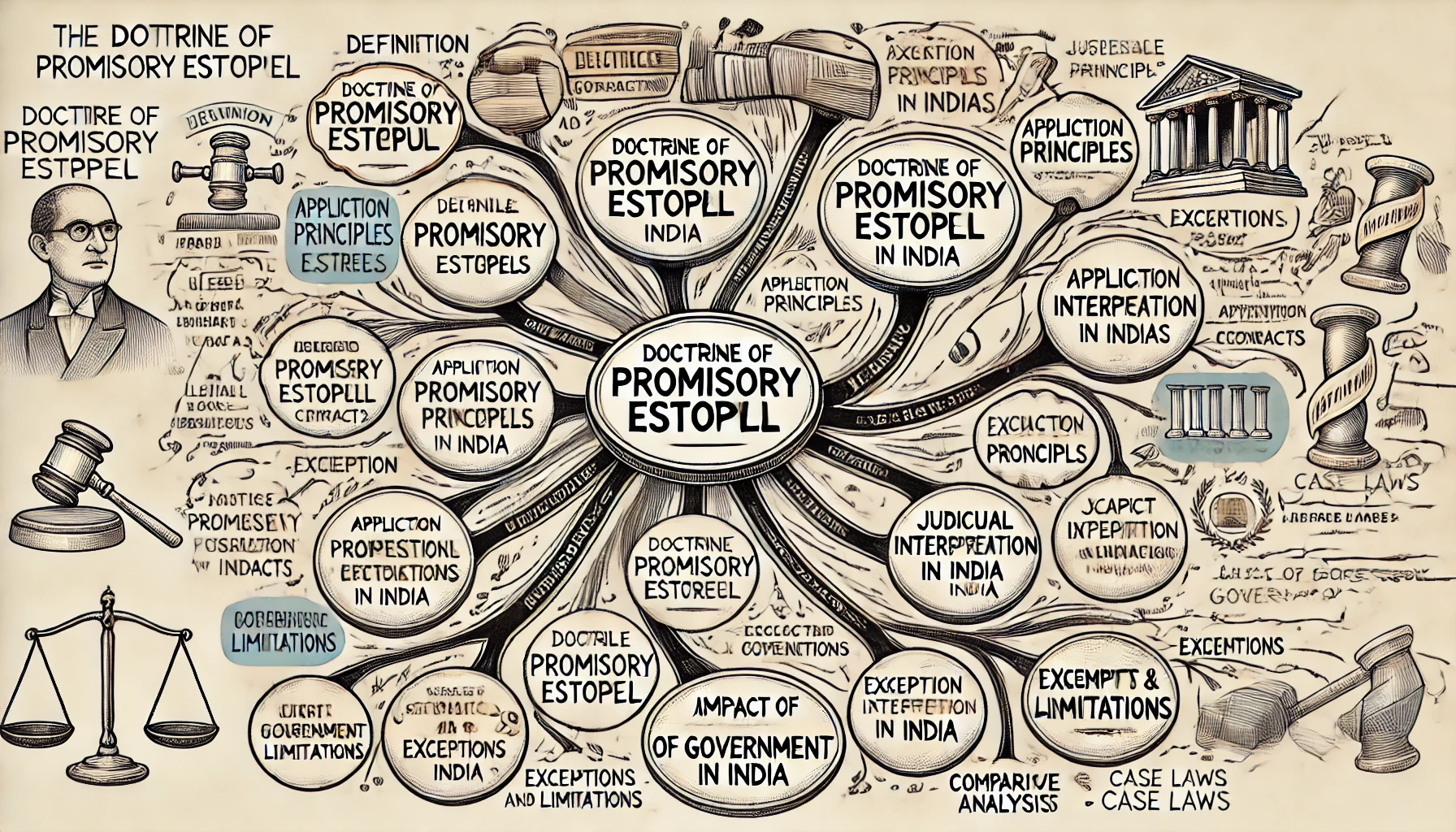
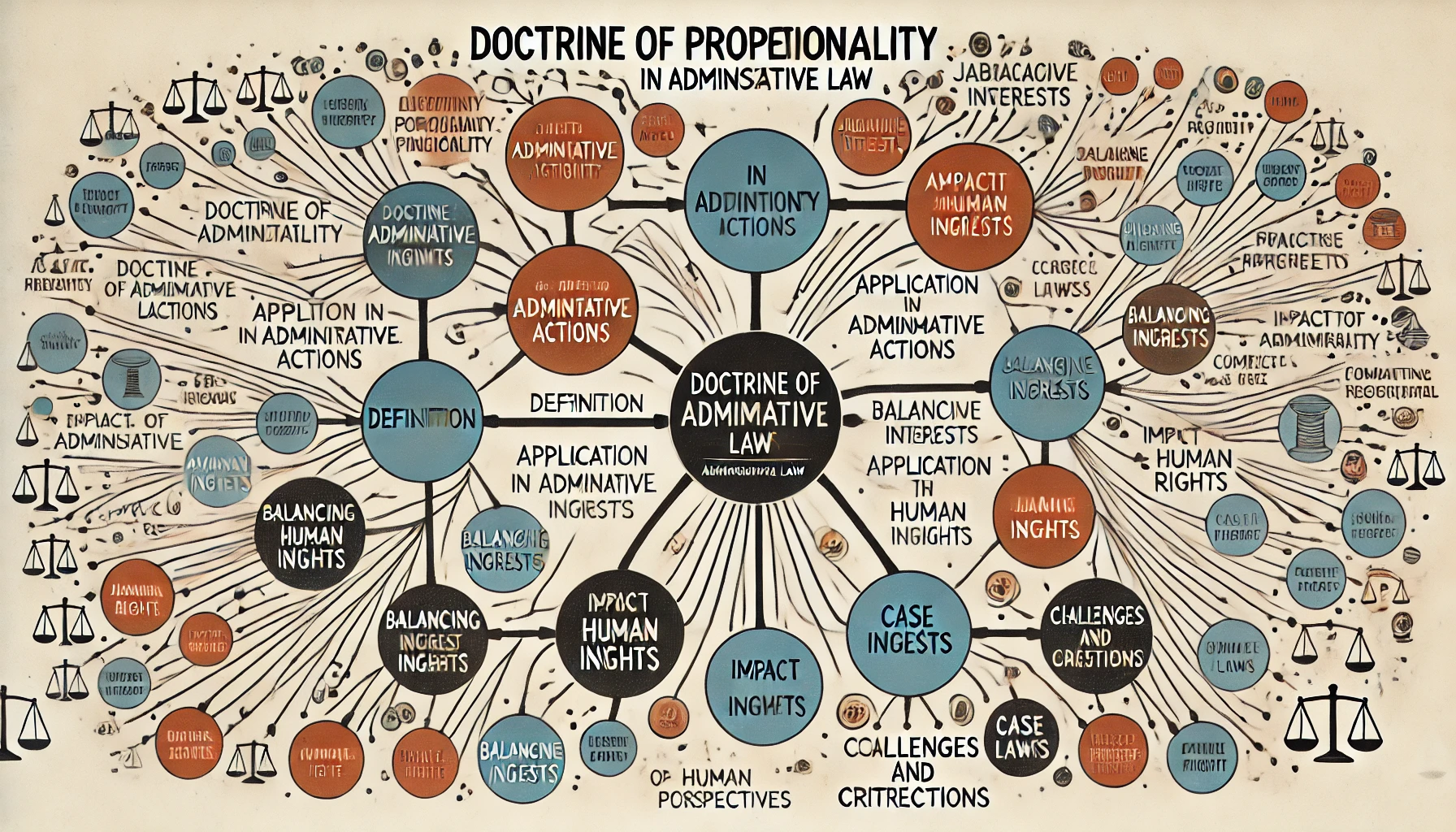
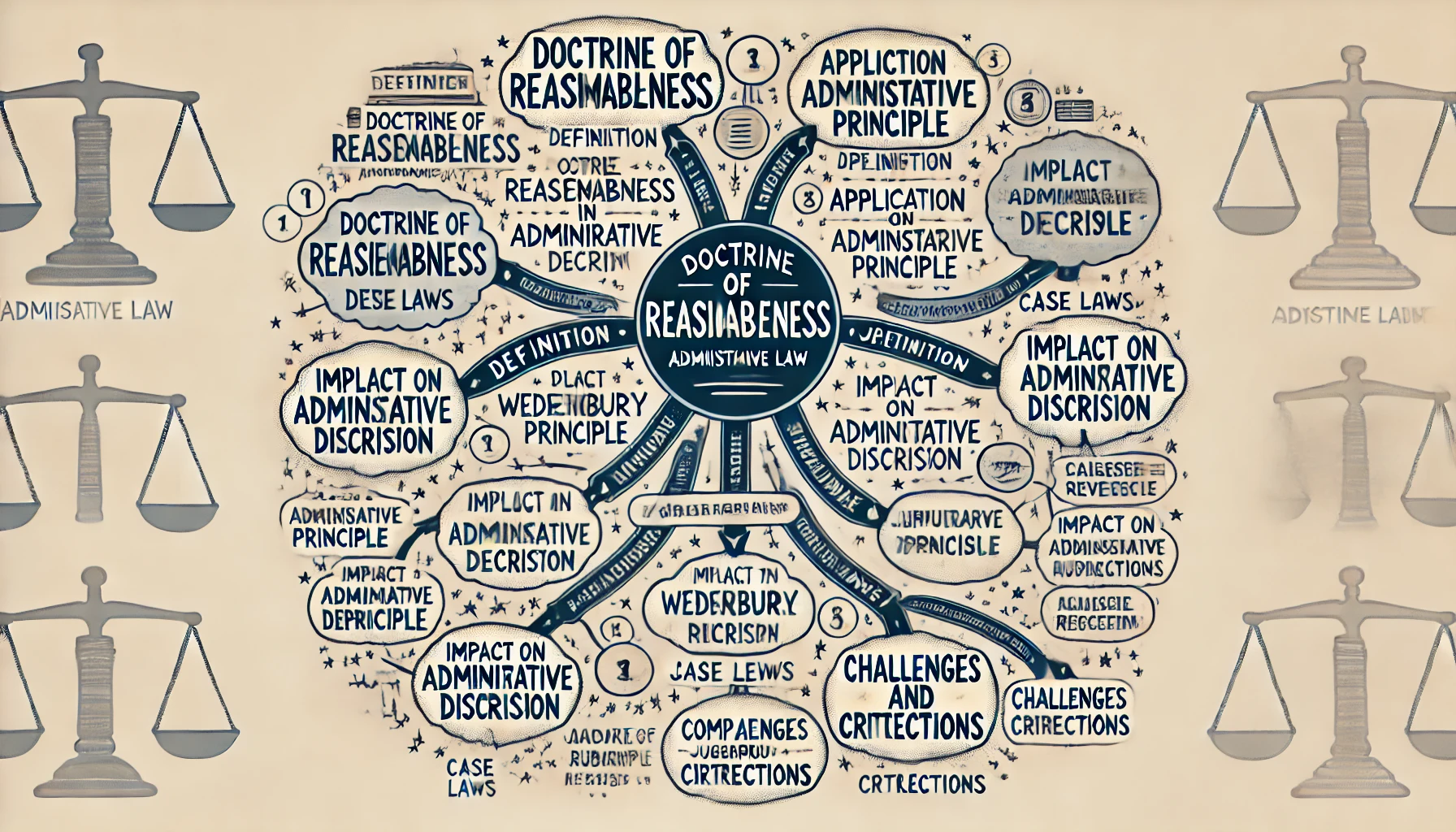


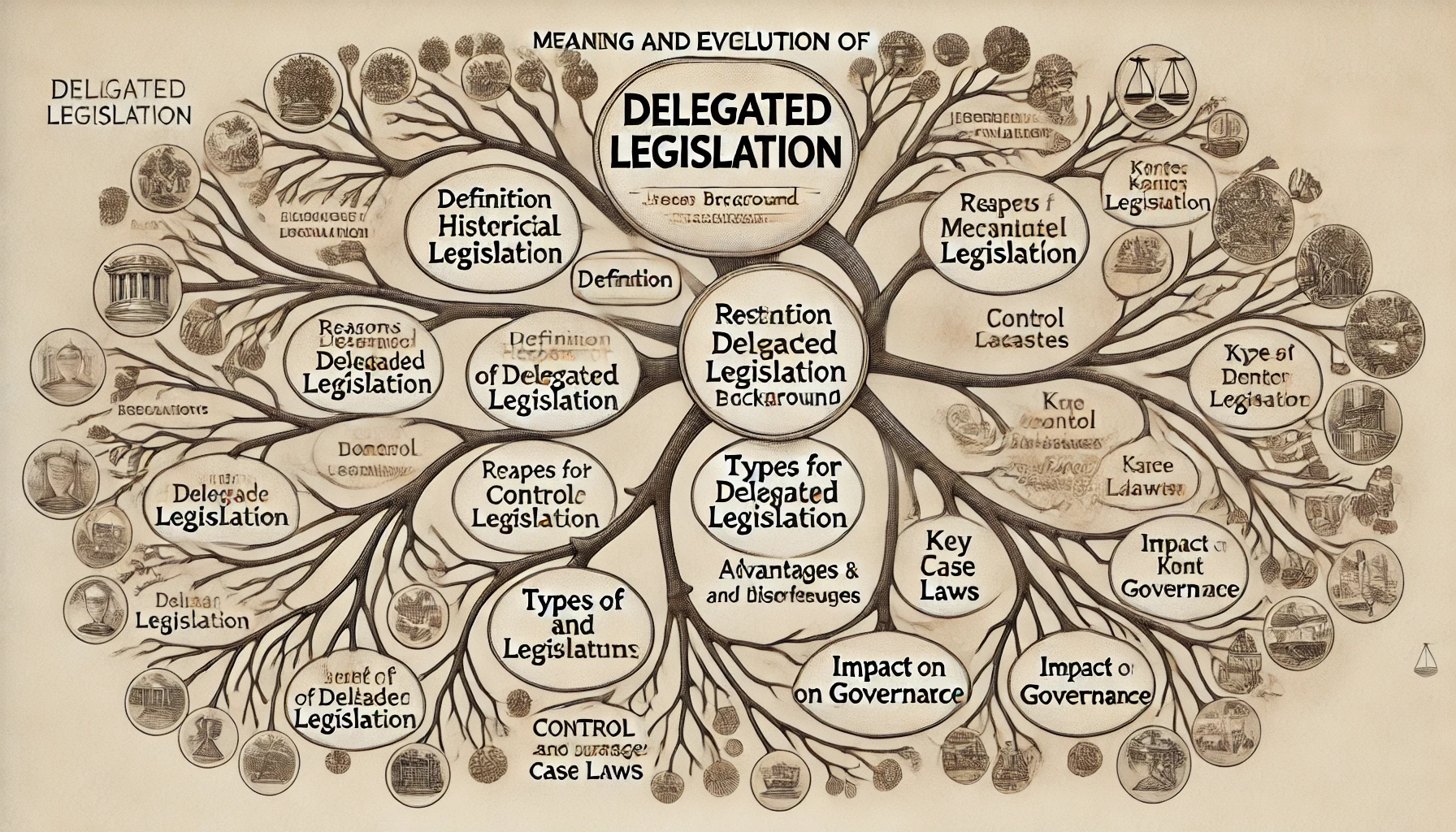
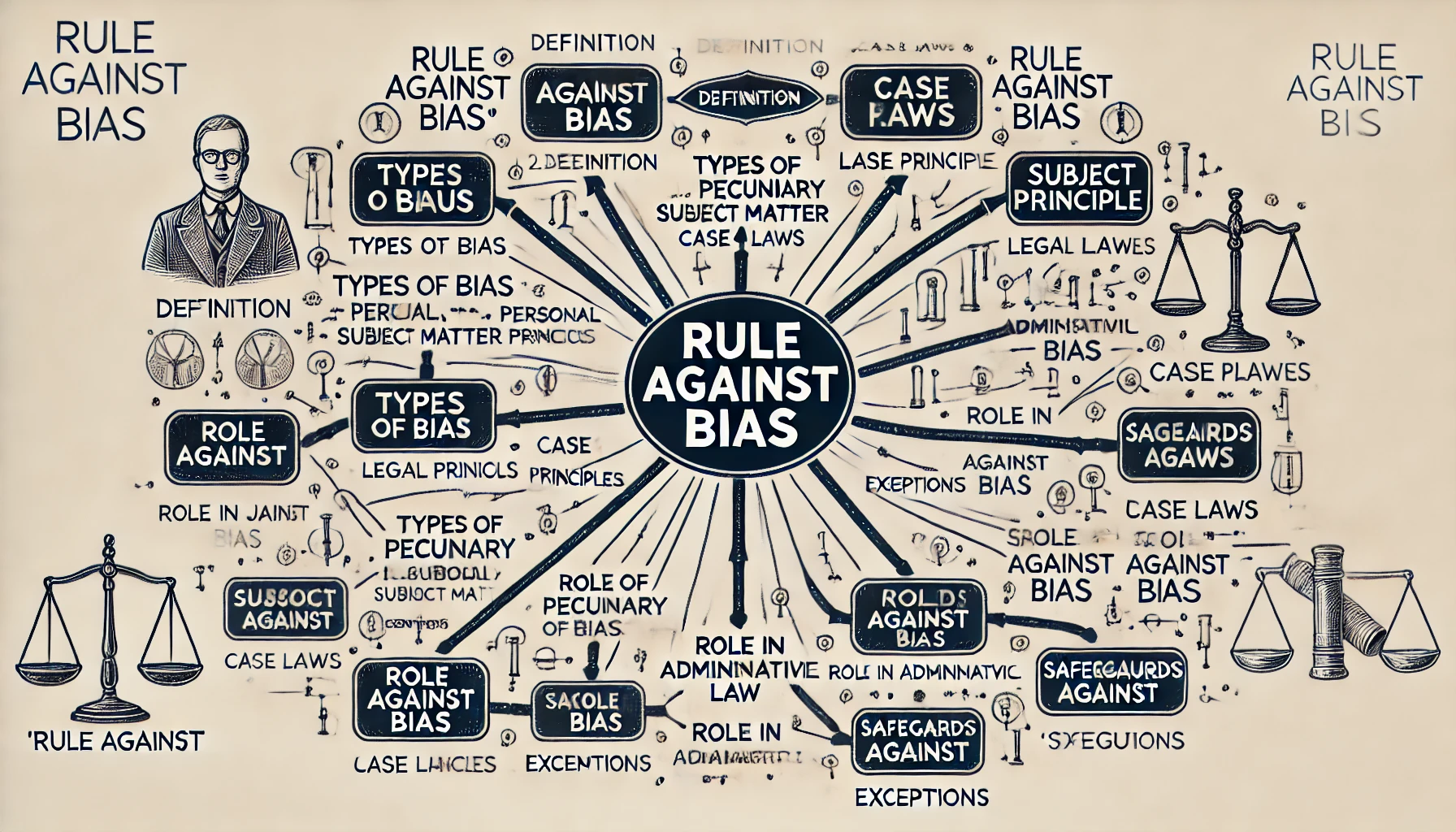
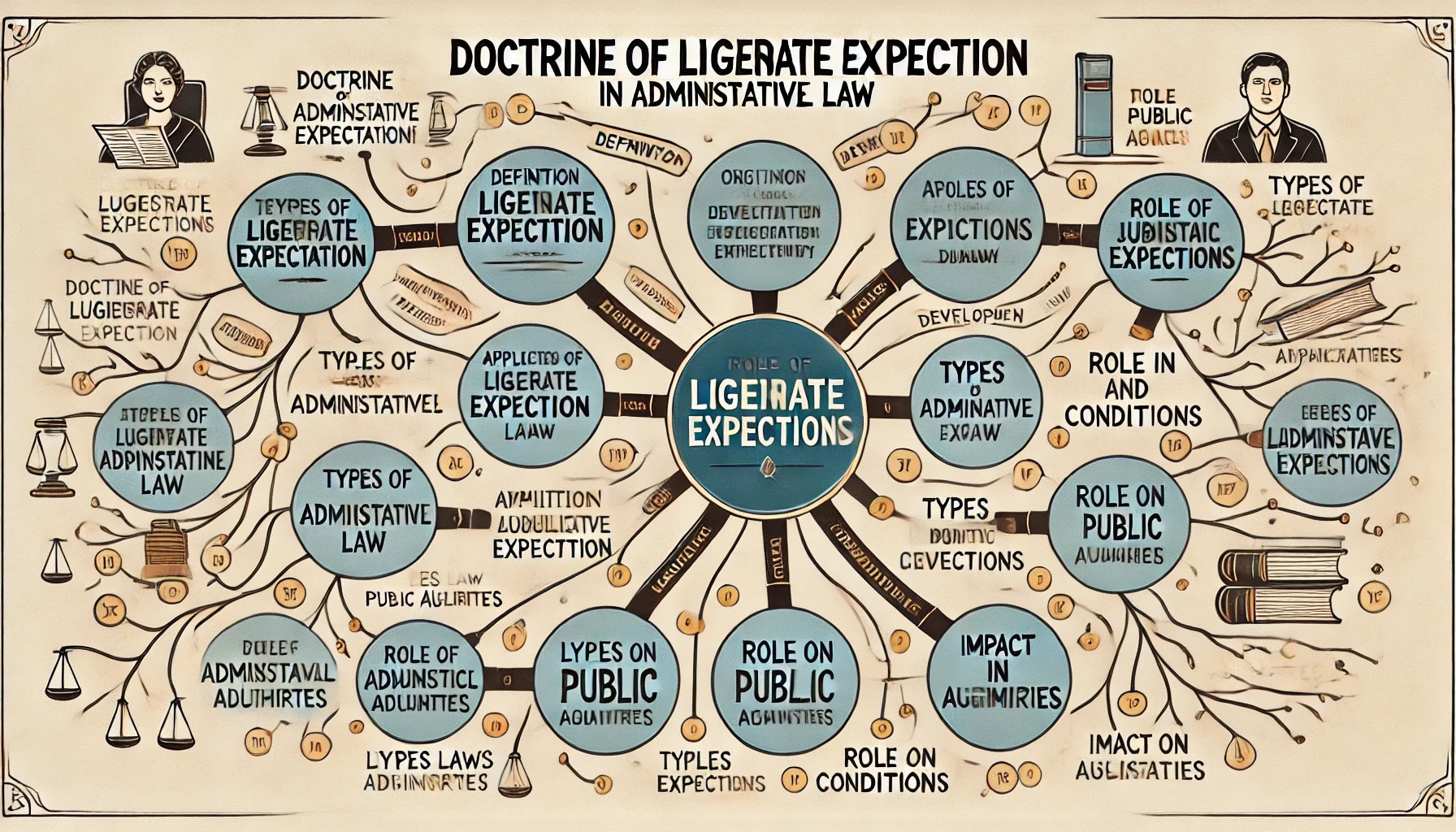
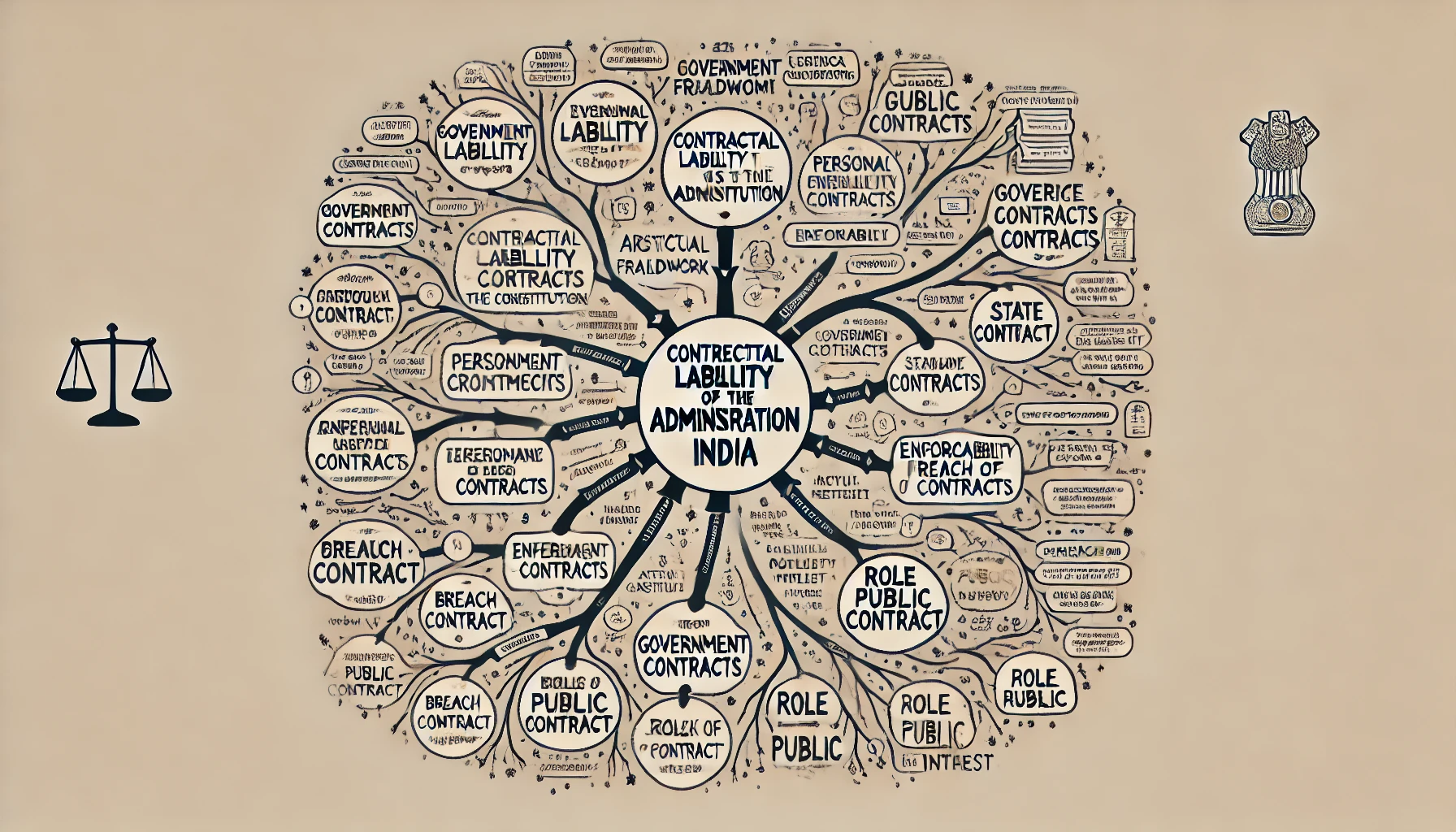
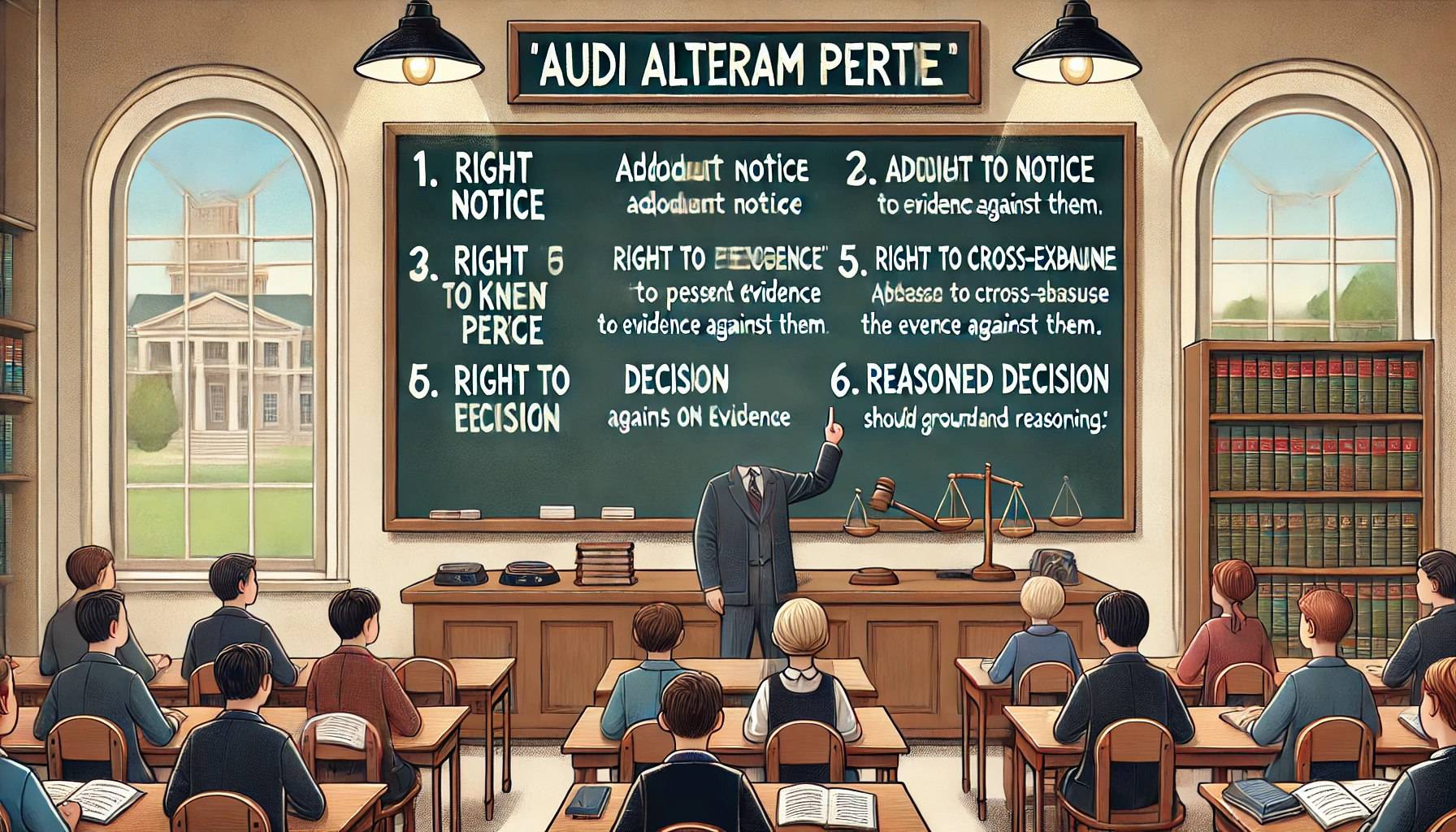

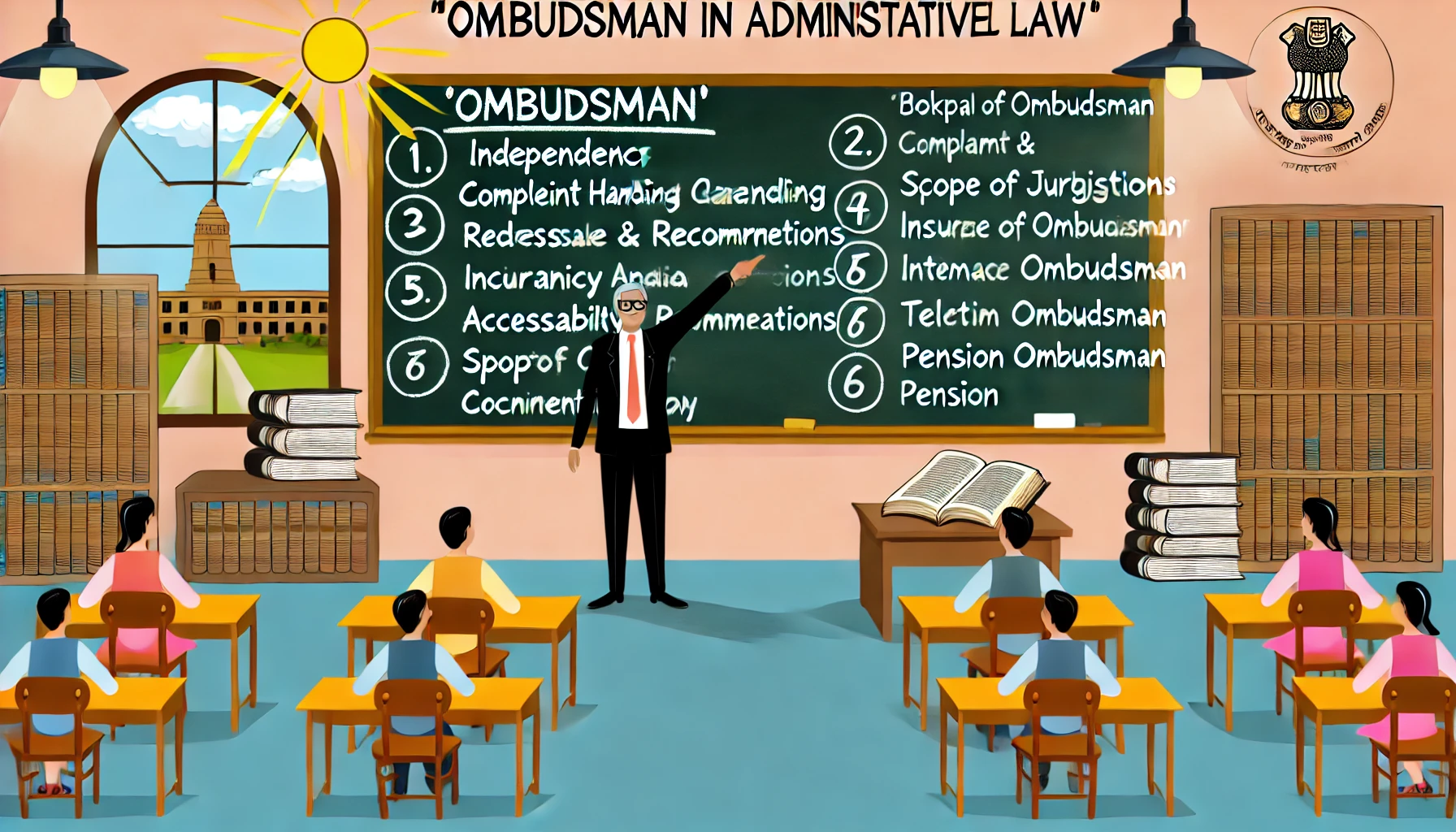
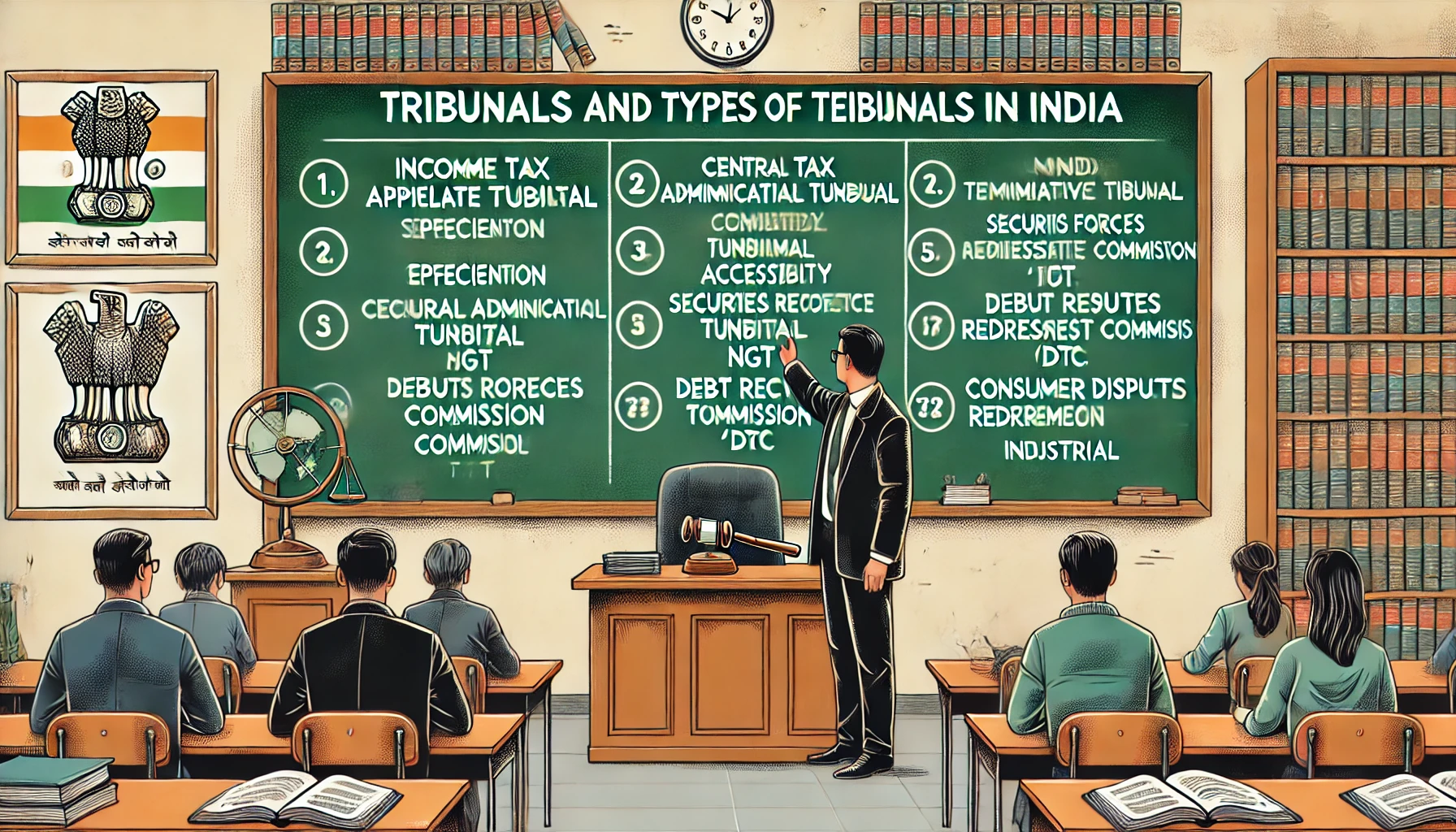
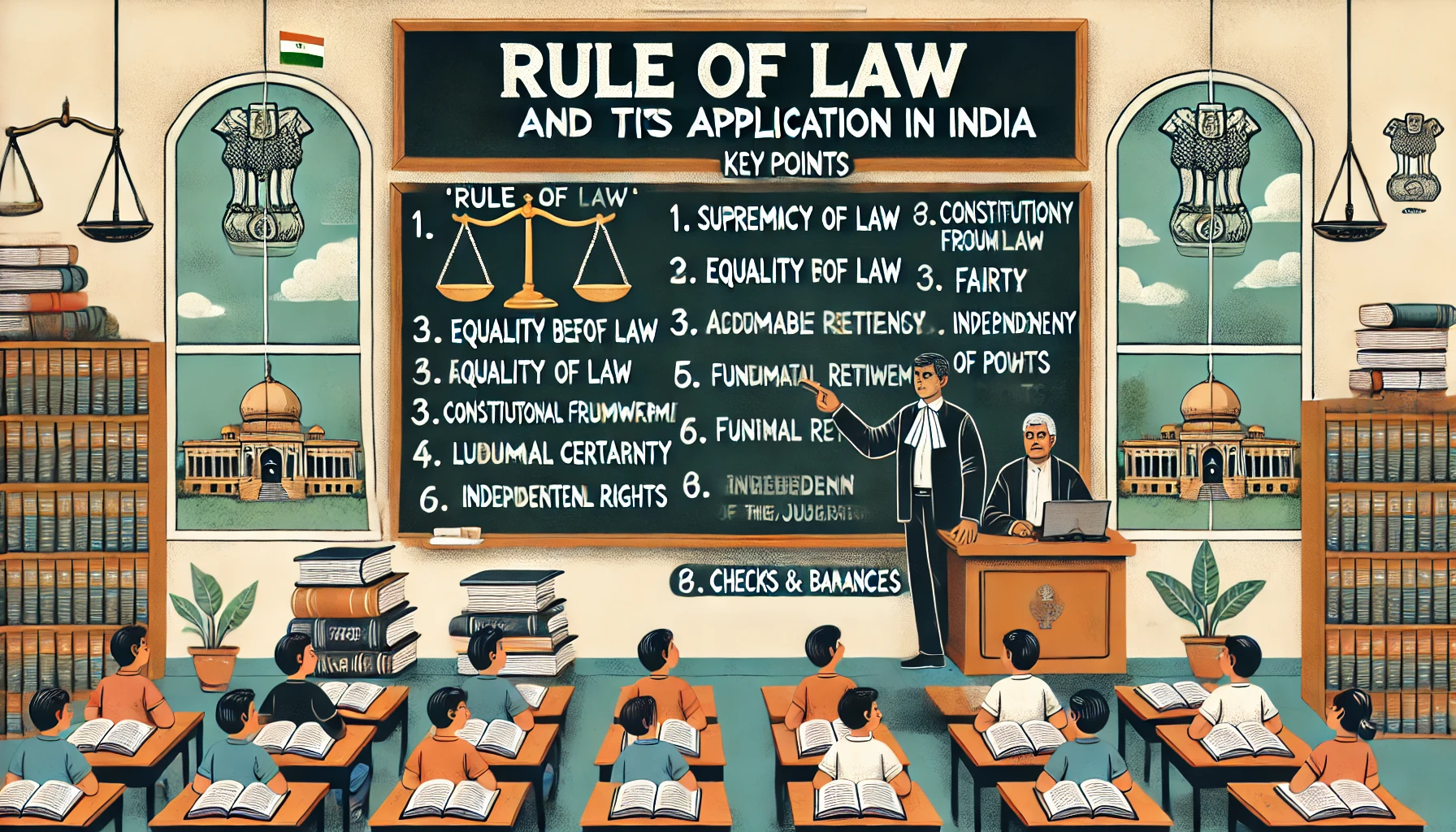

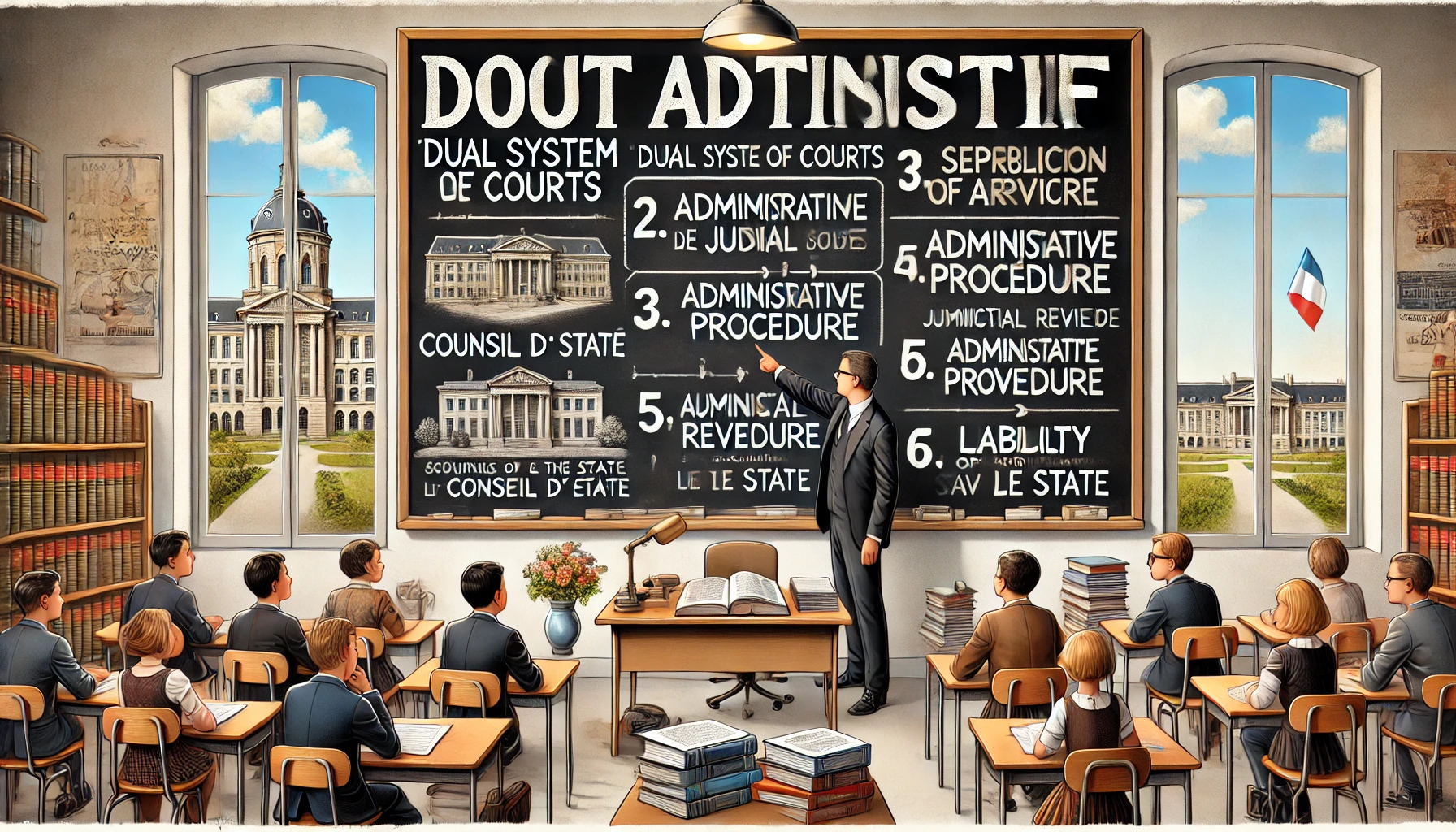

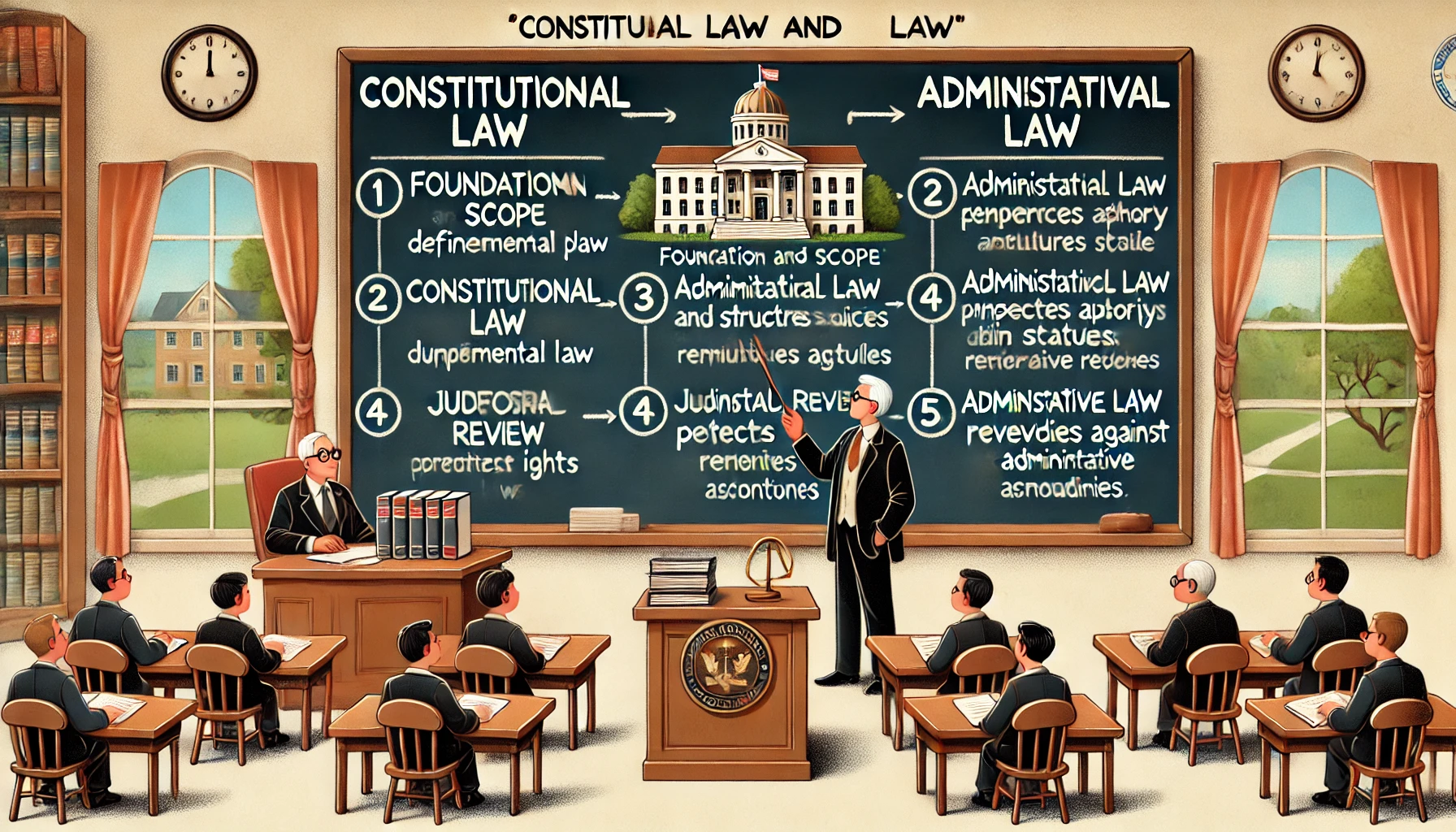































































































Comment
Nothing for now